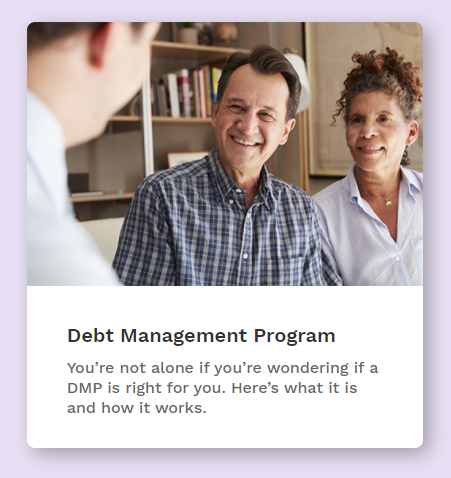Student Budgeting Tips
Practical money management advice for post-secondary students.
Practical Money Management Tips for Post-Secondary Students
Post-secondary students are faced with competing priorities – classes, exams, papers, family commitments, work and life, just to name a few. For many, there just isn’t time left over to manage their finances. However, creating a budget is essential to making student life a little less stressful. Here are some of the best budgeting tips, money management ideas and information about how to get more help for post-secondary students of all ages:
8 Money Management Tips to Help Students Budget Better
- Create a realistic budget that also gives you a little money for fun… yes, fun! Review it each month to make sure you stay on track and have time to adjust it as needed.
- If you are using student loans or have enough money saved to get you through, set it all aside in a separate savings account. Then every two weeks, based on your budget, pay yourself what you need to live. Writing your own pay cheque helps you manage your money so that you have what you need. This is called the holding account method and is one great way to budget with irregular income.
- Needs are more important than wants. If you aren’t sure which is which, live without it and see if you can manage.
- Look for ways to cut down on your expenses; e.g. scale your cell phone features back, avoid eating out more than necessary, watch your transportation costs. It all adds up and every little bit counts.
- Work on campus to save time and money… not to mention the resume boost it can be!
- Track where you spend your money and watch for patterns. A little here and there can add up when you least expect it.
- Avoid credit that you can’t afford. Putting small items on credit cards repeatedly can add as much as 50% to the cost of the items once interest and fees are added on.
- Do not commit to long-term contracts while you are studying. So many things can change while you are a student; you don’t want to tie yourself down unnecessarily.
Lifestyle Choices Impact Your Budget and Goals
- Be realistic about your current circumstances. As a student, you might not be able to live the life-style of your dreams right now. That’s okay… and your education will get you there faster!
- Spend more time with students who are as committed to studying and being at school as you are. It will help you stay focused on completing your education successfully.
- Prioritize your goals – personal, academic and financial. Having a realistic plan for what is important to you, keeps you on track and helps you manage stressful times more effectively.
- Consider living at home if that is an option for you. While it may be your dream to be out on your own, waiting until you’re done school doesn’t mean you abandon your dream… it’s just on hold until you can achieve that dream without it becoming a nightmare.
- If you think you can afford an increase in your expenses, try living that way now and save the difference. If it’s tough to live with the tighter budget, you’ve learned a valuable lesson before it’s too late.
- Pursue what you’re passionate about – it’s easier to work hard through the stressful times when you’re striving for what you really want!
3 Ways Post-Secondary Students Can Get Help Sooner Than Later
Here are some quick tips for you to explore to ensure you get some financial assistance before it’s too late.
Financial Aid & Awards: Your school’s financial aid department is happy to help you. Make yourself an appointment and carefully consider what they suggest. A lot of students avoid the financial aid department because they don’t realize how much they can help. Don’t be afraid to go see them or check them out on your school’s website. They are a wealth of knowledge about all things financial for school.
Academic Advisors: Academic advisors are another amazing resource – take advantage of their expertise. You may save money on courses in the long run and meet your goals sooner!
School Counsellors: If you are struggling, know that you aren’t the first student to have trouble managing all of the competing demands on your time and energy. Being a student can be really hard at times. Ask for help from the counselling department before you feel too overwhelmed.
Bonus Tip! If you need help creating a budget or dealing with debt, our credit counsellors are happy to help you for free! Contact us now to ask some questions or make an appointment.
Find out how to get debt relief.
Get the help you need. Find the right option that will work for your specific set of circumstances - whether that means setting up an amortization schedule, negotiating an interest rate, discussing terms like principal balance and amortization, or just talking through different fees, we’re here to help. Instead of endlessly looking through debt consolidation company reviews, let one of our experienced counsellors help you. If we can't fully help you, we'll refer you to an organization we trust that can or help you put together an action plan so you can get started on your next steps. Feel free to give us a call or chat with us online. We're here to help.
Last Updated on November 23, 2023
Get the clarity you need.
Speak with a non-profit credit counsellor.
If you’re overwhelmed by your current financial circumstances or have difficulty maintaining a monthly budget, we can help you by providing personalized tips for paying off credit card debt. We’ll review your financial situation with you and explore all the different ways you can get rid of your debt. There are even debt relief and debt repayment programs that might help.
Get Some Help – It’s Free
Get a free appointment to explore your options and get back on track.
Related Topics

Getting Rid of Debt
We’re happy to help you figure out your options. There are more than you might think.

Debt Management Program
You’re not alone if you’re wondering if a DMP is right for you. Here’s what it is and how it works.

Credit Counselling
Are you curious about what credit counselling is or how it works? Here’s what you need to know.



